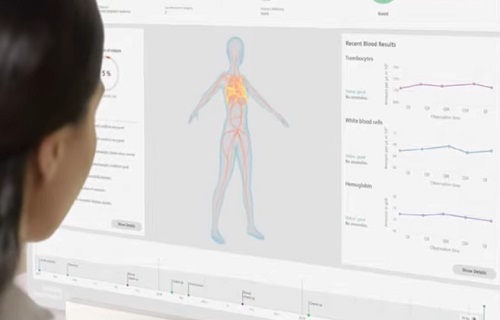Statistics About Air Conditioner
- Global Air Conditioner Market Size: The global air conditioner market was projected to be worth over $160 billion by 2026 with steady growth driven by factors such as rising temperatures, urbanization and increased disposable income.
- Energy Consumption: In the United States, residential cooling (including air conditioning) accounted for about 6% of all the electricity produced, totaling more than 143 billion kWh in 2019.
- Household Penetration: As of 2021, over 90% of American households had air conditioning.
- Health Concerns: The use of air conditioning can lead to health benefits by reducing heat-related illnesses but there are also concerns about its potential to exacerbate respiratory problems, spread infections and contribute to “sick building syndrome” if not properly maintained.
- Temperature Preferences: Studies have shown that people generally prefer indoor temperatures around 72-75°F (22-24°C) for comfort, and air conditioners often play a crucial role in achieving these conditions.
- Environmental Impact: The widespread use of air conditioners contributes to increased greenhouse gas emissions due to electricity consumption. More energy-efficient air conditioning technologies have been developed to mitigate this impact.
- Peak Demand: Air conditioning can lead to peak electricity demand during hot months, putting stress on the electrical grid and potentially causing power outages.


What Is Health Benefits Of Using Air Conditioner?
Using an air conditioner can provide several health benefits, especialy in hot and humid climates. Here are some of the health advantages of using an air conditioner:
- Heat Stroke Prevention: Air conditioning helps to regulate indoor temperatures, reducing the risk of heat-related illnesses such as heat stroke, heat exhaustion and dehydration.
- Respiratory Health: Air conditioners with effective filters can remove airborne allergens, dust, pollen and pollutants, leading to improved indoor air quality and reducing the risk of respiratory issues and allergies.
- Asthma Management: Clean and filtered air can be especially beneficial for people with asthma, as it helps to minimize potential triggers that could exacerbate symptoms.
- Allergy Relief: Air conditioning can help reduce exposure to outdoor allergens like pollen by keeping windows closed, providing relief to people with seasonal allergies.
- Improved Sleep: Cooler indoor temperatures created by air conditioning can contribute to better sleep quality by creating a comfortable sleeping environment. Sleep is essential for overall health and well-being.
- Mold and Mildew Prevention: Air conditioning helps control indoor humidity levels, discouraging the growth of mold and mildew, which can trigger allergies and respiratory problems.
- Comfort for Vulnerable Populations: Elderly people, young children, pregnant women and people with certain medical conditions are more susceptible to heat-related health issues. Air conditioning can offer them a safer and more comfortable environment.
- Reduction of Insect-Borne Diseases: Air conditioning can help keep doors and windows closed, reducing the entry of insects such as mosquitoes that can carry diseases.
- Mental Well-being: Extreme heat can contribute to irritability, fatigue and stress. Air conditioning can create a more comfortable and pleasant environment, supporting mental well-being.
- Hydration Support: Cooler indoor temperatures may reduce the need for excessive sweating and help maintain proper hydration levels.
- Exercise and Physical Activity: Air conditioning allows for safe and comfortable exercise indoors during hot weather, reducing the risk of heat-related injuries.
- Medication Efficacy: Some medications are sensitive to temperature and may degrade in high heat. Air conditioning can help ensure the efficacy of these medications.
- Preventing Heat-Related Deaths: Air conditioning plays a critical role in preventing heat-related deaths during heatwaves, which have become more frequent due to climate change.
While air conditioning can provide these health benefits, maintaining proper temperature settings, clean filters and adequate ventilation is essential for maximizing these advantages while minimizing potential drawbacks like energy consumption.
What Is Health Risks Of Using Air Conditioner?
While air conditioners offer a lot of benefits, there are also some potential health risks associated with their use, especially if they are not properly maintained or used excessively. Here are some health risks:
- Respiratory Issues: Poorly maintained air conditioning systems can become breeding grounds for mold, bacteria and allergens. If these contaminants are circulated into the indoor air, they can exacerbate respiratory conditions such as asthma, allergies and bronchitis.
- Dry Skin and Eyes: Air conditioners can reduce indoor humidity levels, leading to dry skin, dry eyes and irritation of the respiratory passages. This is especially concerning in areas with already low humidity.
- Respiratory Infections: In some cases, air conditioning systems can spread infections if they are not properly cleaned and maintained. Airborne viruses and bacteria can be recirculated throughout a building, potentially cause to respiratory infections.
- Temperature Fluctuations: Frequent transitions between hot outdoor temperatures and cold indoor temperatures due to air conditioning can potentially weaken the immune system and make people more susceptible to illnesses.
- Sick Building Syndrome: Inadequate ventilation and poor indoor air quality caused by closed windows and recirculated air can contribute to “sick building syndrome,” where occupants experience symptoms like headaches, fatigue and respiratory issues.
- Legionnaires’ Disease: Legionnaires’ disease, a severe form of pneumonia, can be caused by the Legionella bacteria that may thrive in poorly maintained air conditioning systems, especially cooling towers.
- Headaches and Fatigue: Spending prolonged periods in heavily air-conditioned environments can lead to discomfort, headaches and fatigue for some people.
- Environmental Impact: While not a direct health risk to people, the environmental impact of increased energy consumption associated with air conditioning can have broader health implications due to its contribution to climate change.
These health risks can be mitigated through proper maintenance, regular cleaning and appropriate use of air conditioning systems. Regularly changing filters, maintaining proper humidity levels and ensuring proper ventilation can help minimize these potential risks. If you experience persistent health issues in an air-conditioned environment, it may be worth consulting a healthcare professional or an indoor air quality specialist.



Advices For Healthy Usage Of Air Conditioner
Here are some tips for healthy and efficient usage of air conditioners:
- Regular Maintenance: Schedule regular maintenance for your air conditioning system. Clean or replace filters as recommended by the manufacturer to ensure good air quality and system efficiency.
- Proper Ventilation: Maintain proper ventilation to prevent a buildup of indoor air pollutants. Use exhaust fans when cooking or showering and consider opening windows when outdoor conditions allow.
- Humidity Control: Use a dehumidifier if needed to maintain indoor humidity levels between 30-50%, which helps prevent mold growth and improves comfort.
- Temperature Setting: Set your air conditioner to a comfortable temperature, typically around 72-78°F (22-26°C). Avoid extreme temperature differences between indoors and outdoors.
- Programmable Thermostat: Use a programmable thermostat to adjust the temperature based on your schedule, reducing cooling when you’re not at home.
- Cooling Zones: If possible, cool only the rooms you’re using rather than the entire house, which can save energy and improve efficiency.
- Sunlight and Shades: Use curtains, blinds or shades to block direct sunlight, especially during the hottest parts of the day.
- Seal Gaps: Ensure that doors and windows are properly sealed to prevent cool air from escaping and warm air from entering.
- Fans: Use ceiling fans or portable fans to help circulate cool air throughout the room, which can make you feel more comfortable at slightly higher temperatures.
- Sleeping Environment: Keep your bedroom cool and comfortable for better sleep. A slightly cooler room and lighter bedding can promote restful sleep.
- Outdoor Units: Keep the outdoor unit of your air conditioner free from obstructions like vegetation or debris for optimal airflow.
- Air Quality: Consider using an air purifier with a HEPA filter to further improve indoor air quality.
- Time Limits: Avoid excessive use of air conditioning. Allow yourself to acclimate to warmer temperatures and use air conditioning as needed to maintain comfort.
- Maintenance Professional: Have your air conditioning system inspected by a professional technician at least once a year to ensure it’s running efficiently and safely.
- Energy Efficiency: Choose energy-efficient models when purchasing air conditioning units. Look for units with high SEER (Seasonal Energy Efficiency Ratio) ratings.
- Window Units: If using window air conditioners, make sure they fit tightly and are well-insulated to prevent hot air from leaking in.
Moderation and proper maintenance are key. Balancing your need for comfort with energy efficiency and indoor air quality will contribute to a healthy and comfortable living environment.
We wish healthy life to you.
Also you can find effective ways for prevent mosquitos and ants in below:

